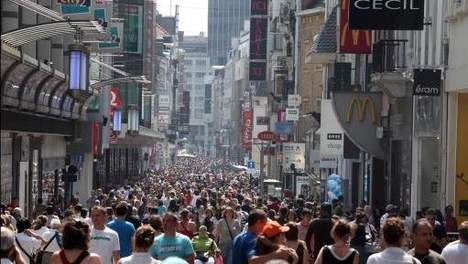The overall well-being of Belgians fell between 2005 and 2016 according to a study by the Federal Planning Bureau. The bureau attributes the decline to a deterioration in the health status of Belgians. "One likely explanation to this deterioration is that the economic crisis has had a negative impact on mental health," says the Planning Bureau. In Belgium, both mental and physical health are important factors of well-being, according to the bureau
The Wellbeing Here and Now Indicator (BEIM) was constructed after identifying the main determinants of well-being in Belgium and their respective importance. It consists of six sub-indicators that measure health status, material deprivation, work incapacity, unemployment, school dropout and social support.
According to this indicator, the well-being of Belgians increased between 2005 and 2008, when it reached its highest point. From 2008 and the beginning of the financial crisis, the well-being decreased considerably over the years to fall to a low in 2011.
It made a slight recovery the following year before starting to fall between 2012 and 2015. This is mainly due to poor overall health and increased work disability.
The slight increase observed between 2015 and 2016 can be attributed to an improvement in social support and, to a lesser extent, an improvement in the state of the people affected by poverty and severe material deprivation.
Despite this increase in the indicator, the current level remains well below that observed in 2008. Since the crisis, the BEIM indicator has tended to fall even when GDP per capita is rising.
The indicator of well-being, however, needs to be improved, according to the Planning Bureau, since it is based on still limited knowledge of well-being.
The Brussels Times

